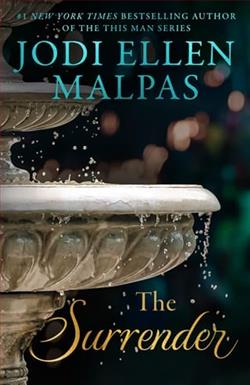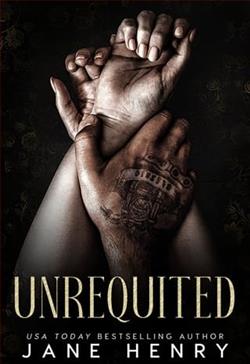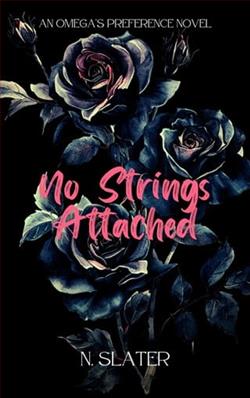Page 19 of Garden of Lies
“I thought I explained. I changed my mind because I realized you would not change yours.”
“Why not simply let me conduct the investigation on my own? Why do you feel obliged to help me?”
An unexpected smile came and went at the corner of Slater’s mouth. “You sound suspicious of me, Mrs. Kern.”
“I do not think you are giving me the whole story, sir. Why this sudden interest in my problems?”
Slater glanced out the window. He appeared to be reflecting on his answer. When he turned back to face her she saw cool determination in his eyes.
“Let’s just say that after some consideration I concluded that I find your project intriguing,” he said.
“I see.”
She had gotten her answer but she was not sure what to make of it. She was not even certain why she was vaguely disappointed in his reason for assisting her. But she had to admit that the logic was sound. It seemed plausible that a man of his nature would be drawn to something as unusual as a private murder investigation. He had, after all, spent the past few years wandering the world. Obviously he had been looking for something, although she very much doubted that he knew what he hoped to find.
“How did your first appointment with Lady Fulbrook go?” Slater asked.
She shuddered. “The house is quite grand but it is incredibly dark and gloomy inside. I cannot decide if the atmosphere is so bleak because the lady of the house is depressed or if it is the atmosphere of the place that is responsible for Lady Fulbrook’s sad mood. Her only solace, evidently, is her conservatory.”
“You said she employed Miss Clifton to take down her poetry in shorthand and type up the results?”
“Yes. Lady Fulbrook has attracted the attention of the publisher of a small literary quarterly in New York. The title of the poem that she is working on now will give you a fair indication of her mood. ‘On a Small Death in the Garden.’”
“It does not sound like the sort of thing that would lift the spirits,” Slater said. “But poets are supposed to be a moody, depressed lot. It’s a tradition, I think. Is Lady Fulbrook any good at writing poetry?”
“You know how it is with literature and other works of art—the beauty of the finished piece is always in the eye of the beholder. Speaking personally, I am not attracted to depressing poetry just as I am not attracted to books or plays with unhappy endings.”
At that, he actually smiled. It was, she concluded, an annoyingly superior smile.
“You prefer fantastical endings rather than those which illustrate reality,” Slater said.
“In my view there are cheerful endings and sad endings but they are all fantastical by definition—otherwise they would not be classified as fiction.”
That surprised a short, rusty laugh from him. He seemed as surprised as she was by his reaction.
“Very well,” he said. “You established that Lady Fulbrook writes melodramatic poems. Was that all you accomplished today?”
“It was only my first day in the post. I did not expect to discover all the answers in one afternoon. And by what right do you presume to criticize? You are only just now joining the investigation.”
“You are correct, of course. I did not mean to be critical. I was merely trying to gather the facts so that we may form some sort of plan.”
“I have a plan,” she said crisply. “And I think we had best establish one very important fact right now before my investigation proceeds any further. I am in charge of this project, Mr. Roxton. I would appreciate your insights and observations because I respect your intellectual abilities and your extensive experience in finding lost cities and temples and such. However, I will make the decisions. Are we quite clear about that?”
He looked at her for a long moment, as though she had spoken in another language. She had no clue to his thoughts but she suspected that he was about to tell her he could not possibly assist her on her terms. Well, what had she expected him to say? He was a man who was clearly accustomed to giving orders, not taking them.
She sat, tense and unaccountably anxious, and waited for him to declare that a truly equal partnership between the two of them would be quite impossible.
“You respect my intellectual abilities and my extensive experience in finding lost cities and the like?” he said.
She frowned. “Yes, of course.”
“Then you will admit that I have something useful to contribute to the project.”
“Certainly. That is why I mentioned my plan to you in the first place. What are you getting at, sir?”
“I’m not sure. I think I am trying to accustom myself to the notion of being admired for my intelligence.” He paused. “And my extensive experience in finding lost things.”
Her patience evaporated. “Well, what the devil did you expect me to admire about your person, sir?”















